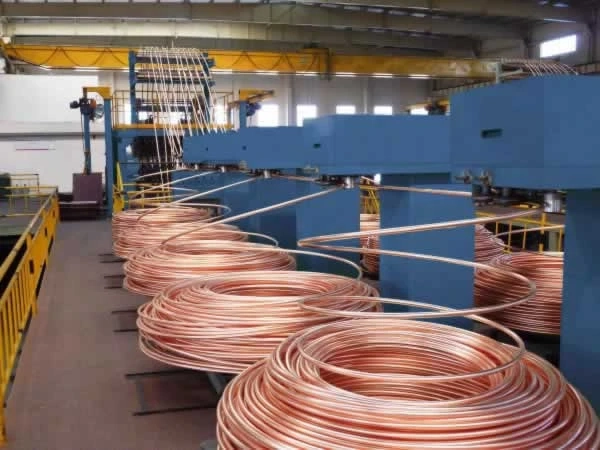What are Continuous Cast Copper Wire Rods?
Continuous cast copper wire rods are manufactured by drawing the molten metal through a die a process known as “casting.” During this process, the molten metal is cooled at a constant rate to ensure that it maintains its original shape throughout production. This creates a uniform rod with consistent diameter and length, making it ideal for manufacturing any number of products, from electrical wiring to jewelry pieces.
The most important feature of Continuous Cast Copper Wire Rods is their ability to maintain their original shape during production. This allows manufacturers to produce longer lengths of wire with fewer interruptions or breaks along its length. Additionally, these rods can be produced with tighter tolerances than other types of casting methods, allowing for greater control over the size and shape of the final product. Finally, these rods come in a variety of different sizes, allowing them to be used in a wide range of applications.
Benefits of Continuous Cast Copper Wire Rods
The primary benefit offered by continuous cast copper wire rods is their cost effectiveness compared to other casting processes like sand casting or die-casting; they require less energy input which reduces production costs significantly while also increasing efficiency and productivity levels in manufacturing facilities. Furthermore, these rods are highly customizable, which allows manufacturers to cater their products specifically towards customer specifications without having to compromise on quality or performance standards; this ensures that customers receive exactly what they asked for without any surprises down the line! Finally, their superior strength and corrosion resistance properties, compared with other metals, such as aluminum or steel alloys, make them ideal for use in extreme environments where high-performance levels are required.
Continuous cast copper wire rods have a wide range of applications across various industries, including automotive wiring, electrical wiring, plumbing fixtures, telecommunications equipment manufacturing, building construction materials manufacturing, and more. The versatility and durability offered by these products make them indispensable for any manufacturer who needs reliable components that won’t break or corrode easily.



